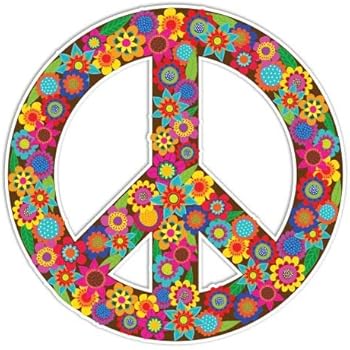
The Hippie movement had new attitudes about drugs and sex, communal lifestyles, and innovations in food, fashion and music. Nearly all their ideas and perspectives clashed with the values their parents held.
One of the things people associate most closely with the Hippy movement is drug usage, and rightly so. The movement heavily advocated for the recreational use of hallucinogenic drugs, especially marijuana and LSD. Many Hippies, people associated with the Hippie movement, were also known to frequently use these drugs.

Another things that Hippies are well known for is their nonviolence attitude. One of their most famous slogans during their time was "make love, not war," a slogan I'm sure many of you have heard before. Due to their opposition to violence, they were sometimes referred to as "flower children."
Overall, the Hippie movement was a youth counterculture in response to the typical suburban lifestyle that had been set up in America. The movement brought new ideas and perspectives and is an interesting part of our history.
Sources:
https://www.britannica.com/topic/hippie
http://www.ushistory.org/us/57h.asp
Great job on this post! Reading about the Hippie movement really reminds me of the Beatniks of the 1950s. Both the Beatniks and the Hippies rejected the American lifestyle, but they used different methods in doing so. The Beatniks tried to protest the conformity of the 1950s by wearing non-traditional clothing and listening to new music. This sounds similar to the Hippie movement, but there is one major difference. Hippies are often more remembered because their movement was highly influential and political. The Beatniks were just a small group of people focused on art and poetry.
ReplyDeleteCool post, Ryan!
ReplyDeleteI find the hippie counter-cultural movement very interesting, because it was such a huge movement away from the social norms of any other era. I was reading about LSD and how it became such a popular drug. Indeed, Timothy Leary, once a Harvard University instructor, became a prominent supporter and advocate of the drug. To convince people to take the drug, he talked about its spiritual and emotional use, and even went on to write over a dozen books about why using acid was good. With loads of media attention, he became a "national guru to a younger generation rebelling against the status quo". His phrase, "turn on, tune in, drop out" became popular as he urged people to "embrace self enlightenment". He rose to prominence after he gave psilocybin, or a mushroom that causes psychedelic effects to graduate students and members of the Harvard community. With his lax attitude and "tune in, drop out" ideology, Leary lost his job but did influence the drug and hippie movement. It would be interesting to see if he was ever put in jail for distributing drugs.
http://www.pophistorydig.com/topics/tag/1960s-drug-culture/